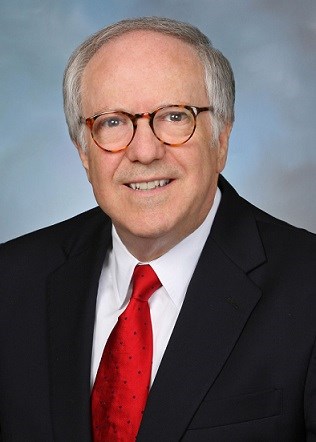5 minutes with... Robert Barnett
 When did you decide to become a lawyer? Why?
When did you decide to become a lawyer? Why?
I drifted into it. I had no grand plan. Although I wasn't sure what I would do with a law degree, I knew that a legal education sharpened the mind, encouraged critical thinking, improved writing, and covered a broad range of subjects. I thought that a legal education could take me in many different directions.
Starting out, what did you expect from a career in the law?
After law school, I clerked – first for Judge John Minor Wisdom on the Fifth Circuit in New Orleans, and then with Justice Byron White on the US Supreme Court. After that, I really wanted to get some experience in government, the legislative process, and politics. So, I worked as a Legislative Assistant for then-Senator Walter Mondale of Minnesota. After that, I joined Williams & Connolly, where I have been ever since.
How did you get into the areas of law you are known for today? By design? Chance? Both?
I have a varied practice. I started out at the firm doing litigation. Then, I started doing deals. After working on debate prep with Vice Presidential candidate Geraldine Ferraro in 1984, I worked on her book deal. So, I started doing book deals. A colleague of my wife's at CBS News asked me to do his television news contract. So, I started doing television news contracts.
Several departing senators and cabinet members asked me to help them transition to the private sector. So, I started doing the wide variety of deals that governmental officials enter into when they leave government service. Many of my clients faced very public crises. So, I started doing crisis management. One thing led to another, as they say.
"Stop saying 'like' and 'you know' – the disease of today's young people. I don't 'like' and I don't necessarily 'know'."
What do you consider to have been your big break?
Clerking. Working on the Hill. Joining my firm. Working in my first presidential campaign. Each of those were important steps in my career.
What differences do you see in today's legal market compared to when you started?
It is very, very difficult to get a job now. The supply greatly outweighs the demand. Firms, corporations, prosecutors' offices, NGOs, etc, are cutting back, not expanding. So, things are entirely different than when I started. Also, the practice of law has become more of a business and less of a profession. One of the many reasons I have stayed at Williams & Connolly is that we remain counselors in the best sense of that word.
What achievement are you most proud of?
Our daughter, Meredith Barnett. Nothing comes close.
What do you consider your greatest failure or regret?
I don't remember failures or dwell on regrets. I learn from them. I will say that losing presidential campaigns is no fun.
What law would you change, abolish or create?
That would take a lot of thought.
Who is your legal hero?
Edward Bennett Williams, the founder of our firm and the greatest lawyer who ever lived. I learned a lot from him, and I find myself quoting him virtually every day. Also, the two great men I was privileged to clerk for.
What career would you have in your second life?
Grandfather – which I am pursuing right now.
What slogan would you like to be remembered by?
'He was loyal, kept confidences, and tried his best. He was a good husband, father, grandfather, counselor, and friend.'
What advice would you give to students trying to enter the legal profession today? And secondly, to those who hope to ultimately get into the areas of law in which you are expert?
Get a good and a broad undergraduate education. Study Shakespeare, art history, writing, and music. Take a broad array of subjects in law school beyond the obvious – including corporations, bankruptcy, and tax. Work on a campaign – national, state, or local.
And stop saying 'like' and 'you know' – the disease of today's young people. I don't 'like' and I don't necessarily 'know'.
Which of the ten presidential campaigns since 1976 for which you were heavily involved in debate preparation did you find the most challenging/enjoyable/interesting, and why?
I have only survived to serve in ten by never answering questions like that. I'll tell you this, it's more fun to win than to lose.
How would you rate the quality of 2012's presidential debates compared to previous years?
Same answer. But, I will add that I would go back to the multi-questioner format and the more pointed questioning with follow-ups. Working on the debates is fabulous because they represent the perfect mix of policy, media, advocacy, and politics – all subjects that I enjoy. In some years, they are consequential, and in some years they are not. But they are always a challenge and always fascinating. I have been privileged to participate.